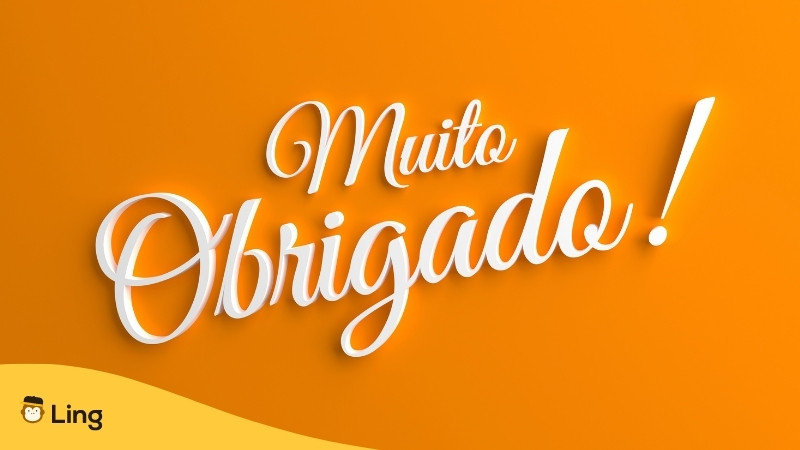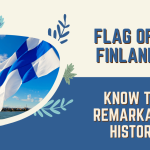Would you like to know how to say thank you in Portuguese? When you learn a new language or go on vacation to a nation where your language is not your mother tongue, the word “thank you” is one of those essential expressions to know and use in every situation.
By saying thank you, we communicate our gratitude and thank someone kind to us, such as the waiter in the restaurant, the shop assistant, or the staff at the hotel reception. Of course, sometimes even a smile is enough to express gratitude, but what is better than being able to say it in words?
This article covers in detail how to say thank you in Portuguese.
Best Ways To Say Thank You In Portuguese
The word thank you is translated into Portuguese with the expression
For example:
Giovanni, who wants to thank Pedro, will say “Obrigado, Pedro,” while if it were Maria who wished to thank Pedro, she would say “Obrigada, Pedro.”
But there are other ways to say thank you in the Portuguese language, for example:
- Brigado, viu! – thank you, see!
- Muito obrigado – Thank you very much
- Brigadão (brigadinho/brigadinha) – Thanks a lot
- Muitíssimo obrigado – Thank you so much
- Obrigada por … – Thank you for …
- Agradecer – To thank
- Grato – Grateful
- Muitíssimo obrigado – Thank you very much
- Obrigadíssimo – Thank you very much
Here are some examples of the word obrigado and the other Portuguese words mentioned above to say thank you in Portuguese:
- Obrigado pela ajuda/obrigada pela ajuda – Thank you for your help
- Obrigada por cozinhar – Thanks for cooking
- Obrigado por tudo! – Thank you for everything!
- Gostaria de agradecer a todos pela ajuda – I’d like to thank you all for your help
What Is The History Behind The Word Obrigado Or Obrigada?
The use of obrigado as “thank you” is relatively recent.
Although it had undoubtedly established itself earlier in oral history, the first written records date back to the nineteenth century. Before this time, two Portuguese, walking through Chiado, thanked each other with an “agradecido” (grateful) or a “bem haja or a grato.”
In reality, the term is the reduction of more complex expressions such as “fico-lhe ligado” or “fico-lhe ligado pelo favor que me fez” (“I am bound by the favor you did me”). Over the centuries, obrigado has been mainly included in the farewell formulas of letters.
Expressions such as:
- Muito venerador – Literal translation: “very venerable.”
- Obrigado in vossa mercê – Literal translation: “thank you in your grace.”
Gradually lost pieces until the interaction of “obrigado” to show gratitude was born, thus bringing the term back to its original Latin meaning.
The Confusion Between Obrigada and Obrigado

The Portuguese and Brazilians sometimes seem confused about using obrigada and obrigado. This expression raises many doubts in everyday life, especially among those of a certain age.
Many men are convinced that if they are thanking a woman, they will have to say “obrigada,” while if the thank you is addressed to a man, they will have to say “obrigado.”
According to Portuguese grammar, when obrigado expresses thanks, the word must agree with the speaker, that is, with the broadcaster.
So always giving an example to the restaurant, Luisa will thank the waitress by saying obrigada, while Luca will thank you by saying obrigado.
The only case in which the word thank you should not be declined is when it is a noun, such as:
And is there a difference with the Brazilian Portuguese thanks? No, thank you is expressed in the same way.
How To Say Thank You In Portuguese To a Group Of People
Many wonder how to say thank you in Portuguese when they are in a couple or a group and thank you by saying “obrigadi,” but it is not a correct expression. So instead, you can use a few different ways.
For example:
- If the group is made up of men, you can say “obrigados,” while if it is a group of women, “obrigadas.”
- If the company is instead an aggregation of women and men, you can use “obrigados.”

Other Things You Should Know About Obrigado and Obrigada
The term obrigado often sounds strange.
Probably because, on a sound level, it is associated with the word obliged. In reality, the Portuguese “obrigado,” as an adjective, means obliged and forced, but also necessary and grateful according to the context.
Obrigado comes from the Latin “obligatu-,” the past participle of the verb “obligare” (to bind).
Also, in ancient Italian (XVIII-XIX century), the term “obligato” was used with the same meaning.
How To Express That You Are Very Grateful
There is also the expression thank you very much in many languages, which is used to strengthen our gratitude and express great gratitude even in informal situations. For example, on vacation in Portugal, we can say:
How To Respond To Thank You In Portuguese
To respond to a thank you, you can say: “de nada.” Or you can also use the following:
Would you like to know how to speak Portuguese fluently?
Learn Portuguese Using Ling App
You can learn Portuguese like a native speaker with the Ling app!
With such a tool, you can navigate and learn every aspect of the Portuguese language, learn common expressions, grammar, and verbs, pronounce each word perfectly, and much more. In addition, everything is available on mobile devices such as phones and tablets. Moreover, if you wish to learn other languages, you can choose between 60+ options with Ling.
You can find helpful information regarding Portugal and more cultural tips in these articles: Is Portuguese Hard To Learn? and Guide To The Spoken Languages In Portugal.
Are you ready to try it out? Download the app on the Play Store and the Apple Store today!



































































